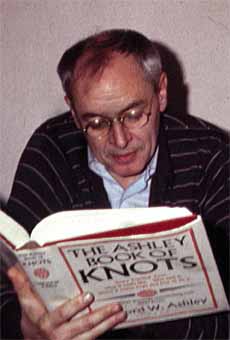Kingsley Hall
Kingsley Hall is a community centre and historical building located in the East End of London, specifically in the Bow area. It has played a significant role in the social and cultural development of the local community since its establishment in the early 20th century. The hall was named after Kingsley Hall, the brother of its founders, Muriel Lester (1883–1968) and Doris Lester (1885–1965), who were prominent figures in the British pacifist and social justice movements.
History[edit | edit source]
The origins of Kingsley Hall can be traced back to 1915 when Muriel and Doris Lester started their work in the Bow area, aiming to provide a space for education, recreation, and community gatherings. The Lester sisters were inspired by their Christian faith and commitment to social reform, and they envisioned the hall as a place where people from different social backgrounds could come together.
In 1928, the current building of Kingsley Hall was officially opened. It was designed to be a community centre that would cater to the needs of the local population, offering a variety of services and activities, including educational courses, health services, and recreational programs.
Significance in Psychiatry[edit | edit source]
Kingsley Hall gained international fame in the 1960s when it became associated with the anti-psychiatry movement, largely through the work of Scottish psychiatrist R.D. Laing. In 1965, Laing and his colleagues established the Philadelphia Association and chose Kingsley Hall as the site for their pioneering residential treatment program for people experiencing psychosis. This program was radical for its time, as it aimed to provide a non-institutional, medication-free environment where residents could live as part of a supportive community, exploring their experiences and realities without the stigma and constraints of traditional psychiatric hospitals.
This experiment at Kingsley Hall challenged conventional psychiatric practices and sparked considerable controversy, as well as interest and debate among mental health professionals and the public. The approach emphasized understanding mental illness through existential and phenomenological lenses, rather than solely through medical models.
Cultural Impact[edit | edit source]
Beyond its significance in the field of psychiatry, Kingsley Hall has also been a vibrant cultural and community hub. It has hosted a wide range of events, including talks by famous figures such as Mahatma Gandhi during his visit to London in 1931 for the Round Table Conferences. Gandhi chose to stay at Kingsley Hall, appreciating its community ethos and commitment to peace and social justice. His stay further cemented the hall's reputation as a symbol of international friendship and solidarity.
Over the years, Kingsley Hall has continued to serve as a venue for community events, educational programs, and cultural activities, maintaining its legacy as a space for social innovation and community engagement.
Legacy and Today[edit | edit source]
Today, Kingsley Hall remains active as a community resource, embodying the principles of its founders and continuing to offer a space for various community initiatives, including mental health support groups, educational workshops, and cultural events. Its legacy as a pioneering site in the anti-psychiatry movement and a community centre dedicated to social justice and peace endures, making it a landmark in the history of social reform in the UK.
Search WikiMD
Ad.Tired of being Overweight? Try W8MD's NYC physician weight loss.
Semaglutide (Ozempic / Wegovy and Tirzepatide (Mounjaro / Zepbound) available. Call 718 946 5500.
Advertise on WikiMD
|
WikiMD's Wellness Encyclopedia |
| Let Food Be Thy Medicine Medicine Thy Food - Hippocrates |
Translate this page: - East Asian
中文,
日本,
한국어,
South Asian
हिन्दी,
தமிழ்,
తెలుగు,
Urdu,
ಕನ್ನಡ,
Southeast Asian
Indonesian,
Vietnamese,
Thai,
မြန်မာဘာသာ,
বাংলা
European
español,
Deutsch,
français,
Greek,
português do Brasil,
polski,
română,
русский,
Nederlands,
norsk,
svenska,
suomi,
Italian
Middle Eastern & African
عربى,
Turkish,
Persian,
Hebrew,
Afrikaans,
isiZulu,
Kiswahili,
Other
Bulgarian,
Hungarian,
Czech,
Swedish,
മലയാളം,
मराठी,
ਪੰਜਾਬੀ,
ગુજરાતી,
Portuguese,
Ukrainian
Medical Disclaimer: WikiMD is not a substitute for professional medical advice. The information on WikiMD is provided as an information resource only, may be incorrect, outdated or misleading, and is not to be used or relied on for any diagnostic or treatment purposes. Please consult your health care provider before making any healthcare decisions or for guidance about a specific medical condition. WikiMD expressly disclaims responsibility, and shall have no liability, for any damages, loss, injury, or liability whatsoever suffered as a result of your reliance on the information contained in this site. By visiting this site you agree to the foregoing terms and conditions, which may from time to time be changed or supplemented by WikiMD. If you do not agree to the foregoing terms and conditions, you should not enter or use this site. See full disclaimer.
Credits:Most images are courtesy of Wikimedia commons, and templates, categories Wikipedia, licensed under CC BY SA or similar.
Contributors: Prab R. Tumpati, MD




